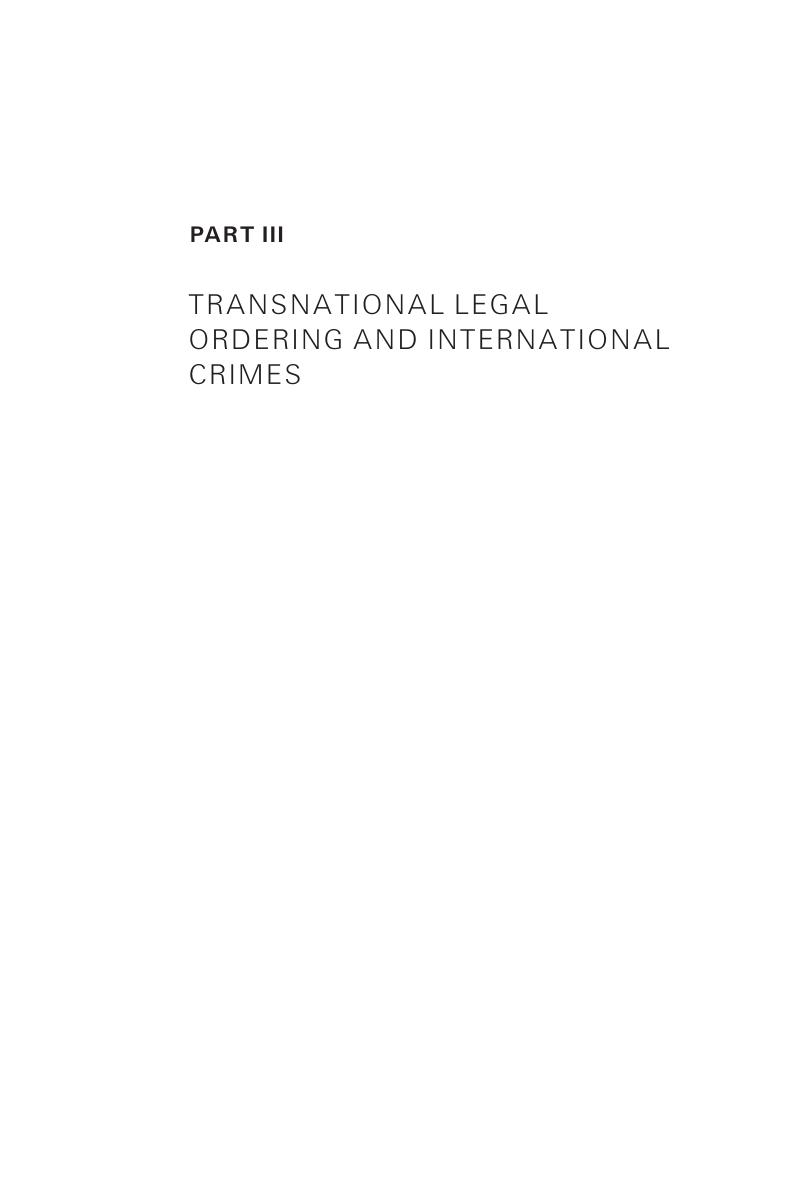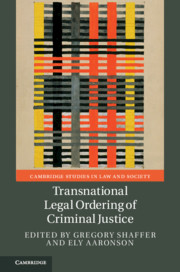Book contents
- Reviews
- Transnational Legal Ordering of Criminal Justice
- Cambridge Studies in Law and Society
- Transnational Legal Ordering of Criminal Justice
- Copyright page
- Dedication
- Contents
- Figures
- Tables
- Contributors
- Acknowledgments
- Part I Introduction
- Part II Transnational Legal Ordering and Transnational Crimes
- Part III Transnational Legal Ordering and International Crimes
- Part IV Transnational Legal Ordering and Human Rights Standards in Criminal Justice
- Part V Conclusion
- Index
- Cambridge Studies in Law and Society
- References
Part III - Transnational Legal Ordering and International Crimes
Published online by Cambridge University Press: 05 June 2020
- Reviews
- Transnational Legal Ordering of Criminal Justice
- Cambridge Studies in Law and Society
- Transnational Legal Ordering of Criminal Justice
- Copyright page
- Dedication
- Contents
- Figures
- Tables
- Contributors
- Acknowledgments
- Part I Introduction
- Part II Transnational Legal Ordering and Transnational Crimes
- Part III Transnational Legal Ordering and International Crimes
- Part IV Transnational Legal Ordering and Human Rights Standards in Criminal Justice
- Part V Conclusion
- Index
- Cambridge Studies in Law and Society
- References
Summary

- Type
- Chapter
- Information
- Transnational Legal Ordering of Criminal Justice , pp. 203 - 258Publisher: Cambridge University PressPrint publication year: 2020

